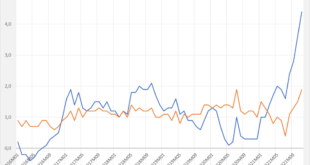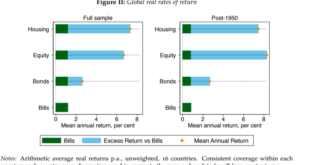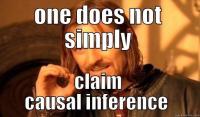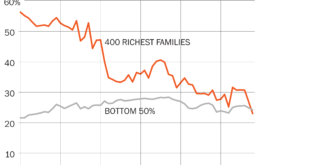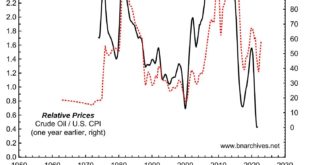About one month ago I wroute about Euro Area inflation: “troubling but transitory“. One month more of data are in. It is even more troublesome but also more transitory. The increase of the consumer price index is dominated even more by energy prices than one month ago. As the Euro Area is a net importer of energy (among other items: natural gas from Russia.). This particular kind of inflation is, to use confusing terminology, highly deflationary… (for the non-energy sectors)....
Read More »How could the 1970s stagflation have been avoided?
from Philip George How could the 1970s stagflation have been avoided? The stagflation of the 1970s is widely believed to have heralded the eclipse of Keynesian economics and the rise of monetarism. In a previous post (https://rwer.wordpress.com/2021/08/14/weekend-read-what-caused-the-stagflation-of-the-1970s-answer-monetarism/) I had argued that this was not the case and that the stagflation was directly caused by the monetarist policies of the time. But there is an even more important...
Read More »A golden age of macro economic statistics 5. Rates of return.
It still has to feed into the management of pension funds or global wealth funds. Or, does it? It seems that Black Rock is already investing more in real estate… Look here and here. It might well be that this happens because because the smarties at Black Rock read the work of Jorda, Knoll, Kuvshinov, Schularick and Taylor, who gathered data on ‘‘The Rate of Return on Everything, 1870–2015”, including the rate of return on ‘houses’ (better: the rate of return on ‘land underlying...
Read More »January 7, 2022
Causal identification
from Lars Syll Causal identification requires nonstatistical information in addition to information encoded as data or their probability distributions … This need raises questions of to what extent can inference be codified or automated (which is to say, formalized) in ways that do more good than harm. In this setting, formal models – whether labeled ‘‘causal’’ or ‘‘statistical’’ – serve a crucial but limited role in providing hypothetical scenarios that establish what would be the case...
Read More »Repealing Section 230: Giving Mark Zuckerberg what he wants?
from Dean Baker I have been engaging on Twitter recently on my ideas on repealing Section 230. Not surprisingly, I provoked a considerable response. While much of it was angry ad hominems, some of it involved thoughtful comments, especially those from Jeff Koseff and Mike Masnick, the latter of whom took the time to write a full column responding to my proposals on repeal. I will directly respond to Mike’s column, but first I should probably outline again what I am proposing. I somewhat...
Read More »Democracy? Surely not!
from Peter Radford Let’s stir things up for the New Year by continuing with one of my recent themes. A quote from an opinion piece in the NYT this morning [January 3rd]: “James Madison boasted that the Constitution achieved “the total exclusion of the people, in their collective capacity.” Its elaborate political mechanics reflect the elite dislike and mistrust of majority rule that Madison voiced when he wrote, “Had every Athenian citizen been a Socrates, every Athenian assembly would...
Read More »Tax the rich? Yes!
from Lars Syll
Read More »Models and reality
from Lars Syll One of the limitations with economics is the restricted possibility to perform experiments, forcing it to mainly rely on observational studies for knowledge of real-world economies. But still — the idea of performing laboratory experiments holds a firm grip of our wish to discover (causal) relationships between economic ‘variables.’If we only could isolate and manipulate variables in controlled environments, we would probably find ourselves in a situation where we with...
Read More »Relative oil prices and differential oil profits
from Shimshon Bichler and Jonathan Nitzan If you thought that oil profits are about producing oil, think again. The enclosed chart, updated from our 2015 Real-World Economics Review paper, ‘Still About Oil?’, shows that the main determinant of oil profit — and specifically of differential oil profit — is not output, but prices. The figure shows the correlation between two series: (1) the differential oil profits of the world’s integrated oil companies, computed as the ratio between their...
Read More » Real-World Economics Review
Real-World Economics Review

